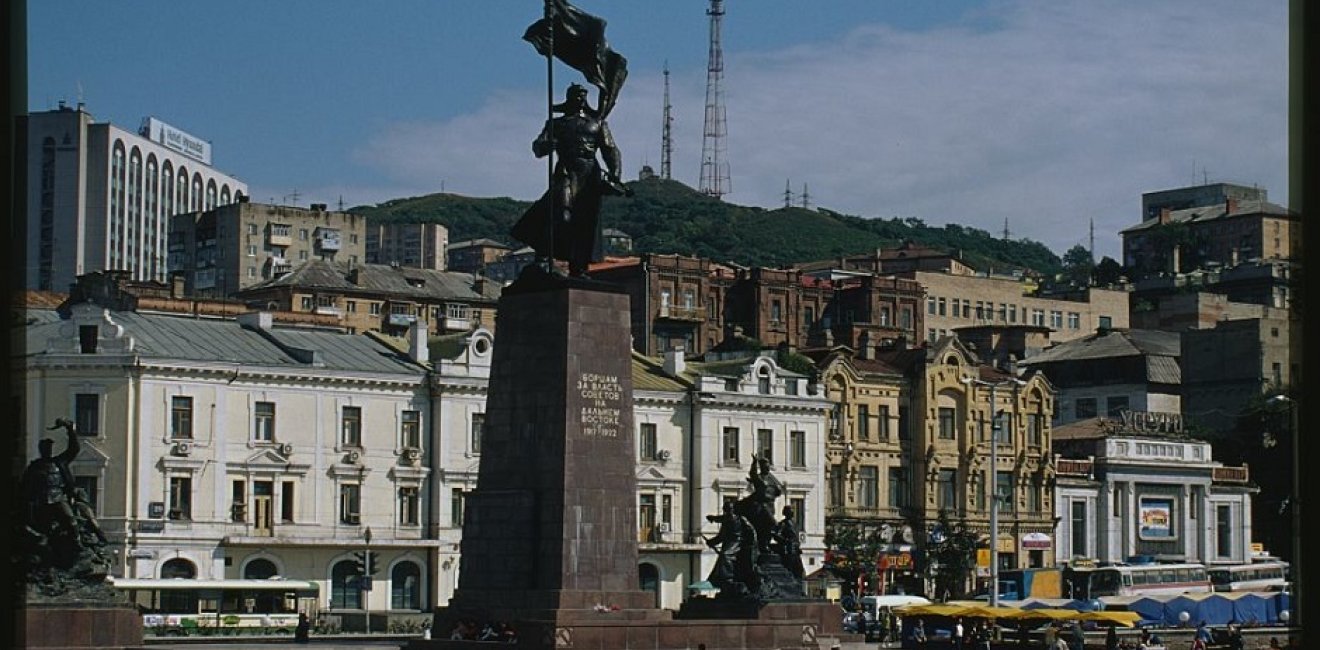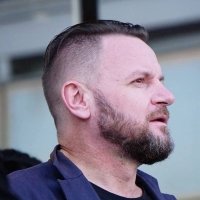
A blog of the Kennan Institute
Primorye, Russia’s Far East region with a center in Vladivostok, is Moscow’s biggest headache this year. In September, voters did not elect a new “Muscovite” governor sent from the capital, but instead welcomed the resignation of the old one, and supported an obscure Communist Party candidate, all with one goal in mind—to express their frustration with an election controlled from Moscow.
To save face, Moscow annulled the September election results and scheduled a rerun for December. The Kremlin put forward a new candidate, a controversial figure but one with local roots, and promised to bestow generous gifts on the local residents, such as budgetary subsidies and relocation of the capital of the Far Eastern Federal District from Khabarovsk to Vladivostok.
Andrey Ishchenko, the accidental winner of the September round, will likely be prevented from running in December. As Moscow sees it, the bad communists of Vladivostok (they are not really party-line communists, just local politicians using the brand) broke an unspoken agreement, and won. In the inverted world of controlled politics, one is rewarded for losing and punished for winning—if one is not the Kremlin-approved candidate.
Moscow believes it has been more than benevolent and thinks the Primorye residents are an ungrateful bunch. Over the past decade, Vladimir Putin’s government has proclaimed a special interest in the Far East. Moscow rebuilt an airport in Vladivostok and gave a modern campus to the local university, built a large oceanarium on the island of Russky in the Sea of Japan, and threw up a bridge to it. The Kremlin held an APEC summit in the region, among other expensive projects. Moscow initiated the Far Eastern Hectare project, a scheme offering any Russian citizen an opportunity to obtain, free of charge, a hectare of land in the Far East.
But the Soviet-built infrastructure continues to decay. To drive over the world’s longest cable-stayed span and visit the world’s largest oceanarium, residents of the remote parts of Primorye first must make their way over miles of unpaved roads and ford numerous small rivers whose bridges have been destroyed by floods.
The local residents see little value in Moscow’s gifts. The migration dynamic remains unchanged from what it was before the bridge and the oceanarium were built: local residents keep leaving, while Russians from other regions are in no hurry to resettle there. The Far Eastern Hectare project did not take off.
Vladivostok is almost as expensive as Moscow. To make a decent living, people need either to be entrepreneurial or capable of exploiting natural resources by farming, fishing, or wild harvesting local herbs. But these traditional Far Eastern pursuits are subject to increasing restrictions. Moscow has just introduced a new tax on the self-employed, taxed the small farms, and introduced other regulations.
Moscow’s new candidate for the December rerun is Oleg Kozhemyako, an experienced Far Eastern official. Born in Primorye, he is an insider. After having served as a senator representing Primorsky Krai, Kozhemyako served consecutively as the governor of three Far East regions: the now defunct Koryak Autonomous Okrug, Amur Oblast, and Sakhalin Region.
The Kremlin seems to have issued Kozhemyako a pre-election blank check. He promised and in some cases has already delivered goods that could not have been expected as little as six month ago. Vladivostok will become the capital of the Far Eastern Federal District; the new electricity consumption norm will not apply to Primorsky Krai; car owners of the region will not have to install the mandatory GLONASS button (this is the emergency alert system relying on the Russian version of GPS that does not work and costs an extra U.S. $500 per imported vehicle). The region was promised 3.7 billion rubles for flood control, 1.7 billion to settle the debts of medical organizations, all in all an additional 5 percent for the regional budget.
All that was necessary was to create a fuss around an election. Of course, this carrot received by Primorye also looks like a stick to the residents of the neighboring Khabarovsk Krai, who voted down a Moscow-approved candidate and actually elected an extra who was not supposed to win but was on the ballot for diversity (just as Ishchenko was in Primorye).
Kozhemyako is presenting himself as someone who understands the Far East, as someone who knows how to find common ground with Moscow officials while also criticizing them publicly, though without naming names. The question is whether the locals will accept him as one of their own. People are already annoyed by his constant media presence.
Right out of the gate, Kozhemyako had a brief clash with the mayor of Vladivostok, who promptly resigned. The future governor managed to secure the loyalty of other influential groups and even old enemies, but the strength of these alliances is questionable.
It is not clear who Kozhemyako’s rivals are now. The voters will likely be deprived of a candidate through whom to channel their protests. The Communist Party was apparently pressured not to nominate a candidate, which caused enormous disappointment among the local rank and file.
After taking a break, businessman Andrey Ishchenko, the winner of the September round, decided to run as an independent candidate, but he does not have enough time to meet the formal requirements to get his name on the ballot, such as collecting a required number of preliminary votes of residents and municipal deputies.
Another contender who theoretically could pick up the protest vote is a candidate from the LDPR, Vladimir Zhirinovsky’s party. But the paradoxical role of the LDPR, like that of the Communist Party, is just to be on the ballot, not to do any serious campaigning.
The remaining candidates are no match for Kozhemyako. They are all seeking free PR. Only the preapproved spoilers will meet the formal criteria, and even they will likely withdraw before the ballots are printed.
Moscow is solving its Primorye problem in two ways: by forcefully removing an opposing candidate and by pouring money into the campaign. This means spending both political and material resources on the region. Meanwhile, the neighboring regions are suffering losses: in the zero-sum game logic of managed democracy, some of the gifts to Primorye are taken from its neighbors, such as the district capital and federal subsidies.
The civic enthusiasm that was invigorated by the unexpected result of the first election round will likely subside. But in two years Primorye will face two big elections: to the regional parliament and to the State Duma. By then the lure of electoral promises will have faded and the financial and tax burden on the population will have increased even more, while the memory of a window of opportunity for protest will still be there.
Author

Kennan Institute
After more than 50 years as a vital part of the Wilson Center legacy, the Kennan Institute has become an independent think tank. You can find the current website for the Kennan Institute at kennaninstitute.org. Please look for future announcements about partnership activities between the Wilson Center and the Kennan Institute at Wilson Center Press Room. The Kennan Institute is the premier US center for advanced research on Eurasia and the oldest and largest regional program at the Woodrow Wilson International Center for Scholars. The Kennan Institute is committed to improving American understanding of Russia, Ukraine, Central Asia, the South Caucasus, and the surrounding region through research and exchange. Read more

Explore More in The Russia File
Browse The Russia File
Chechnya as a Model of Modern Russia

Russia’s Indigenous Communities and the War in Ukraine

Gas and Power in a Changing US–Russia Relationship


